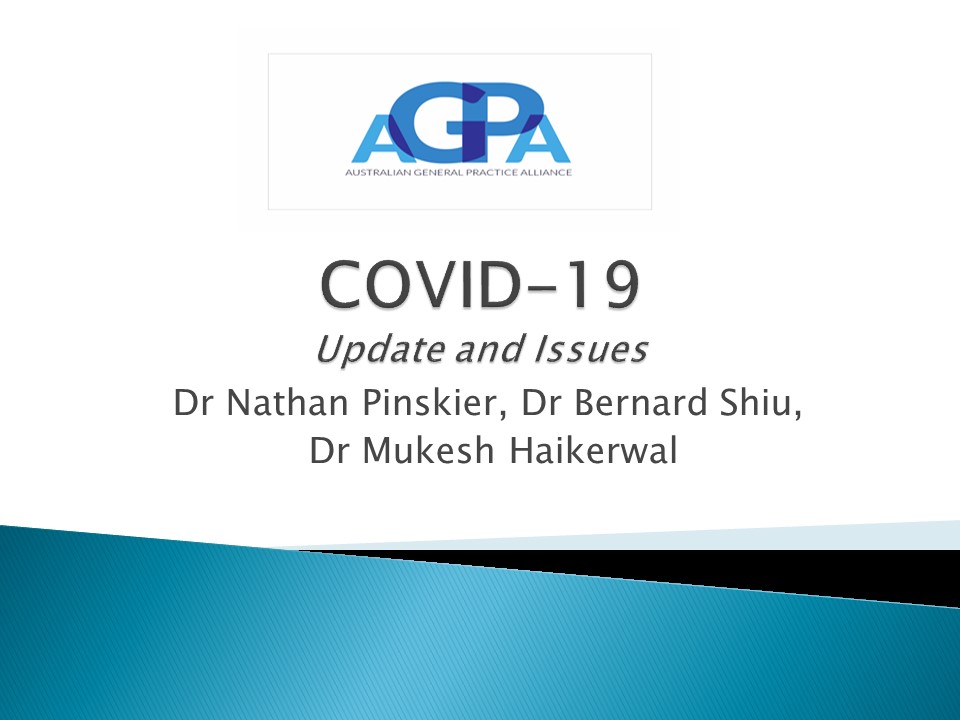AGPA urges focus on the viability of General Practices.
The AGPA welcomes the decision of the Australian Government to extend MBS (Medical Benefits Schedule) Telehealth item numbers to cover all members of the community and all GPs regardless of the circumstances. This will help to reduce the risk of COVID-19 transmission and support the maintenance of necessary patient care.
AGPA also applauds the recognition of General Practice and primary health care in leading the fight against the Pandemic.
However, AGPA urges the removal of requirements for the bulk billing only of Telehealth items as quickly as possible.
Many General Practices in Australia are structured in a way that private billing of patients is essential for their financial viability.
The viability of General Practices has come under significant strain in recent weeks as workloads have increased due to dealing with COVID-19 enquiries and changed work practices, while consultations have decreased as patients avoid the perceived risk of infection in waiting rooms.
If General Practices are to successfully maintain primary health care during the Pandemic their viability needs to be secured. Government must not interfere with the relationship between patients and Doctors and should allow Practices to decide how to manage their businesses and organise their billing structures
